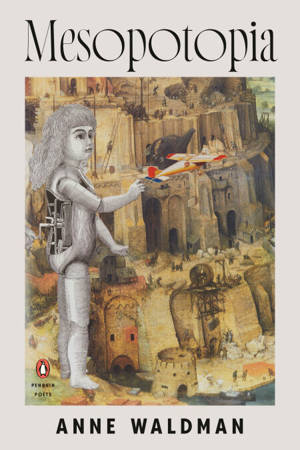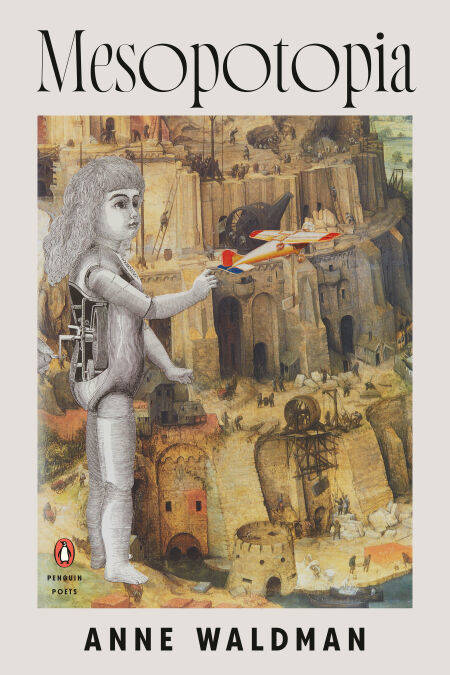
- Afhalen na 1 uur in een winkel met voorraad
- Gratis thuislevering in België vanaf € 30
- Ruim aanbod met 7 miljoen producten
- Afhalen na 1 uur in een winkel met voorraad
- Gratis thuislevering in België vanaf € 30
- Ruim aanbod met 7 miljoen producten
Zoeken
Omschrijving
“To understand the radiance of the poetry world you have to look at Anne.” —Eileen Myles, author of A Working Life
From “one of the most important and irreducible living American poets” (Poetry Foundation) comes a powerful and prophetic collection of epic scope and vision
Mesopotopia explores the vast sweep of our accelerating, precipitous world. From the cradle to the grave, from the mysterious poetic origins of Mesopotamia to our own dystopias of the twenty-first century, Anne Waldman crafts a singular, radical investigation into the syncretic layers of quantum space and dreamtime. She invokes “studying” as the most compelling ritual and tool for evolution and travels to various fellaheen worlds, treading metabolic pathways and ancient “antitheses realities,” and gleans sacred texts that speak urgently through the transports and telepathies of poetry. Troubadour dawn songs, pyramid texts, Buddhist mantras, canonical hours of Judeo-Christian tradition, Persian prayers, Druid sorcery, and the wild, gnarly syntax and modal structure of Waldman’s particular performative passion and wit are all conjured here.
What emerges is a meditation on the salient words of the French poet Antonin Artaud contemplating the destruction and rubble post–World War II: “We are not yet born, we are not yet in the world, there is not yet a world, things have not been made, the reason for being has not yet been found.” Mesopotopia—mythic maelstrom, rhythmic rite of passage, protolanguage trance dance—moves toward release and gnosis.
From “one of the most important and irreducible living American poets” (Poetry Foundation) comes a powerful and prophetic collection of epic scope and vision
Mesopotopia explores the vast sweep of our accelerating, precipitous world. From the cradle to the grave, from the mysterious poetic origins of Mesopotamia to our own dystopias of the twenty-first century, Anne Waldman crafts a singular, radical investigation into the syncretic layers of quantum space and dreamtime. She invokes “studying” as the most compelling ritual and tool for evolution and travels to various fellaheen worlds, treading metabolic pathways and ancient “antitheses realities,” and gleans sacred texts that speak urgently through the transports and telepathies of poetry. Troubadour dawn songs, pyramid texts, Buddhist mantras, canonical hours of Judeo-Christian tradition, Persian prayers, Druid sorcery, and the wild, gnarly syntax and modal structure of Waldman’s particular performative passion and wit are all conjured here.
What emerges is a meditation on the salient words of the French poet Antonin Artaud contemplating the destruction and rubble post–World War II: “We are not yet born, we are not yet in the world, there is not yet a world, things have not been made, the reason for being has not yet been found.” Mesopotopia—mythic maelstrom, rhythmic rite of passage, protolanguage trance dance—moves toward release and gnosis.
Specificaties
Betrokkenen
- Auteur(s):
- Uitgeverij:
Inhoud
- Aantal bladzijden:
- 240
- Taal:
- Engels
- Reeks:
Eigenschappen
- Productcode (EAN):
- 9780525508540
- Verschijningsdatum:
- 11/08/2025
- Uitvoering:
- E-book
- Beveiligd met:
- Adobe DRM
- Formaat:
- ePub

Alleen bij Standaard Boekhandel
+ 17 punten op je klantenkaart van Standaard Boekhandel
Beoordelingen
We publiceren alleen reviews die voldoen aan de voorwaarden voor reviews. Bekijk onze voorwaarden voor reviews.







